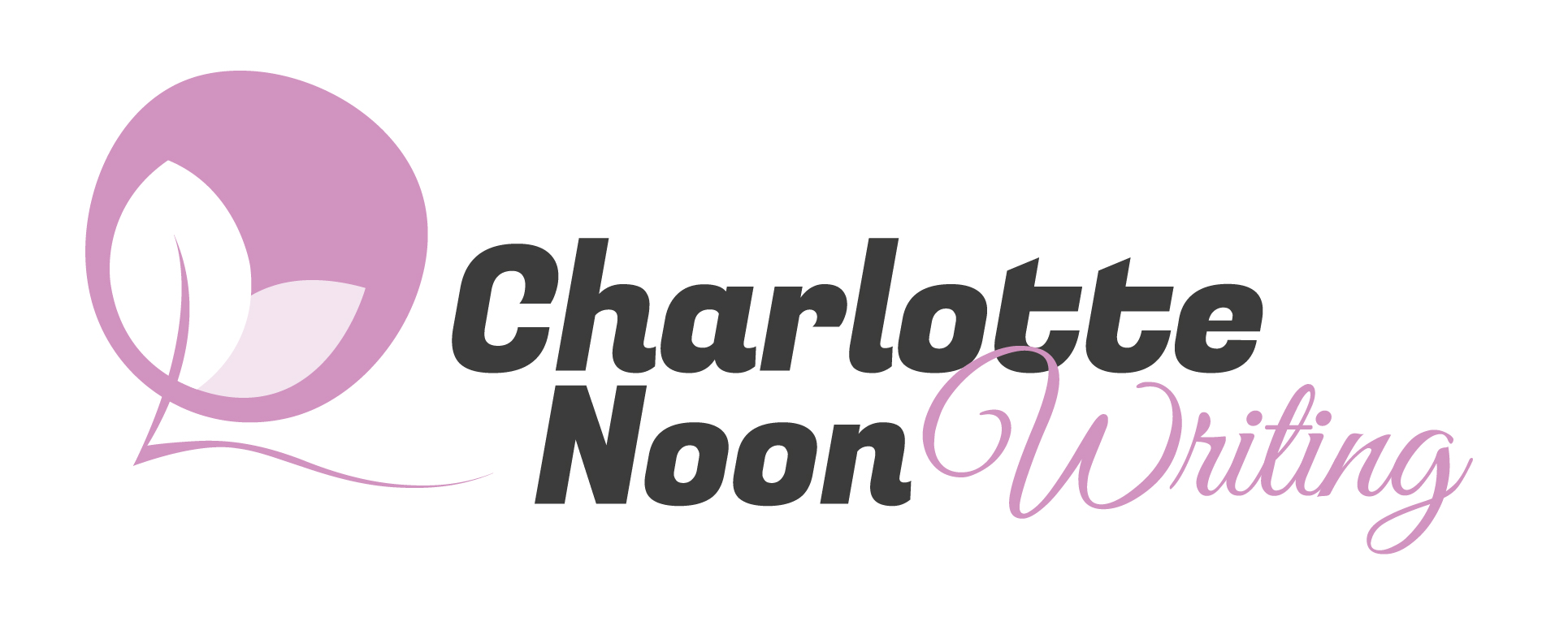Published articles
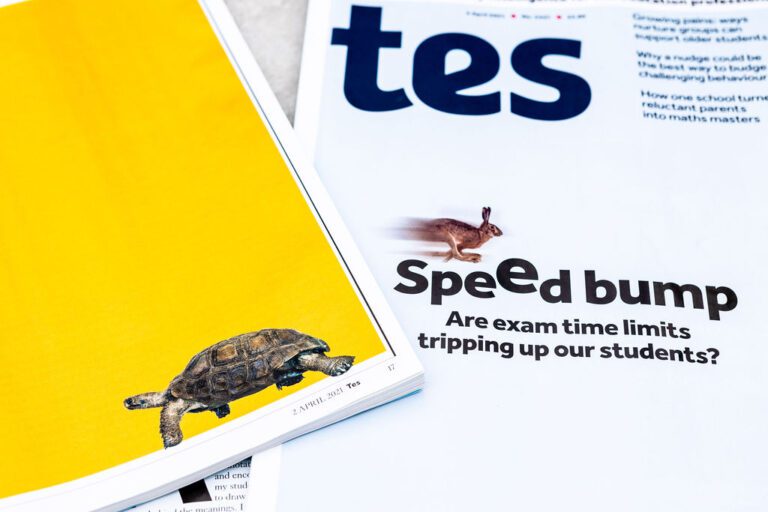
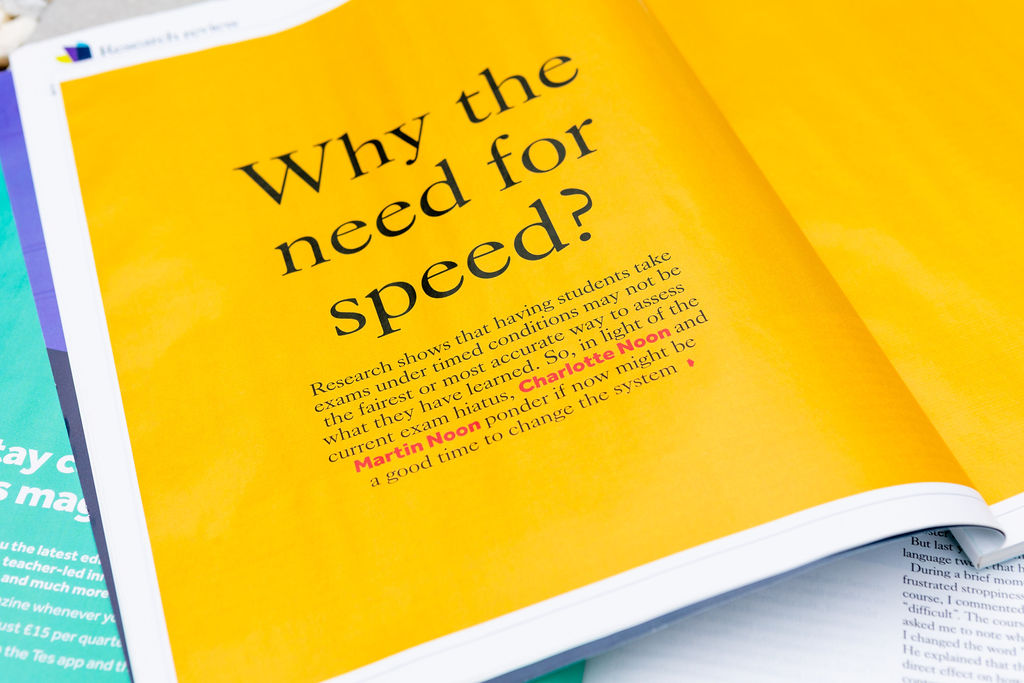
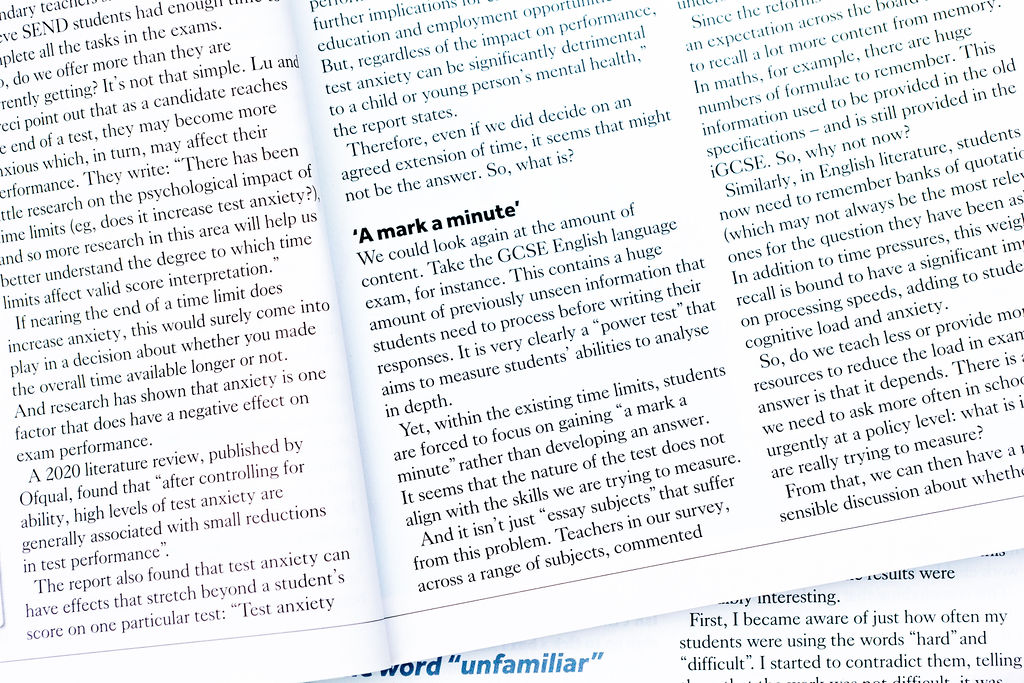
Feature article for Times Educational Supplement
The brief:
Following the exam hiatus caused by the Covid-19 pandemic, my husband, Martin Noon (a Maths teacher) and I (an English teacher) were approached by the editor of TES to undertake a 4-page research article about whether students taking exams under timed conditions was a fair or accurate way to test them. The article was well-received and we were invited to discuss the issue further on the TES podcast.
We designed and conducted a survey which was sent out to teachers where we discovered that a whopping 81.4% of secondary teachers believed the exam system was in need of a change with many primary teachers calling for SATS to be “scrapped”. Many teachers reported that they did not feel that the time limits given enabled students to think deeply and produce their best work and that the exams really seemed to be testing the speed that a student can recall information under pressure, rather than their understanding of the topic. A staggering 73.2% of secondary teachers said that they believed the centre-assessed grades that were awarded during Covid (instead of exams) enabled them to give students their true potential grade.
The conclusion to the article: Too many young people are currently being excluded from a future they are capable of partaking in, not on the basis of what they know (or don’t know) but simply on how quickly they are able to demonstrate it.
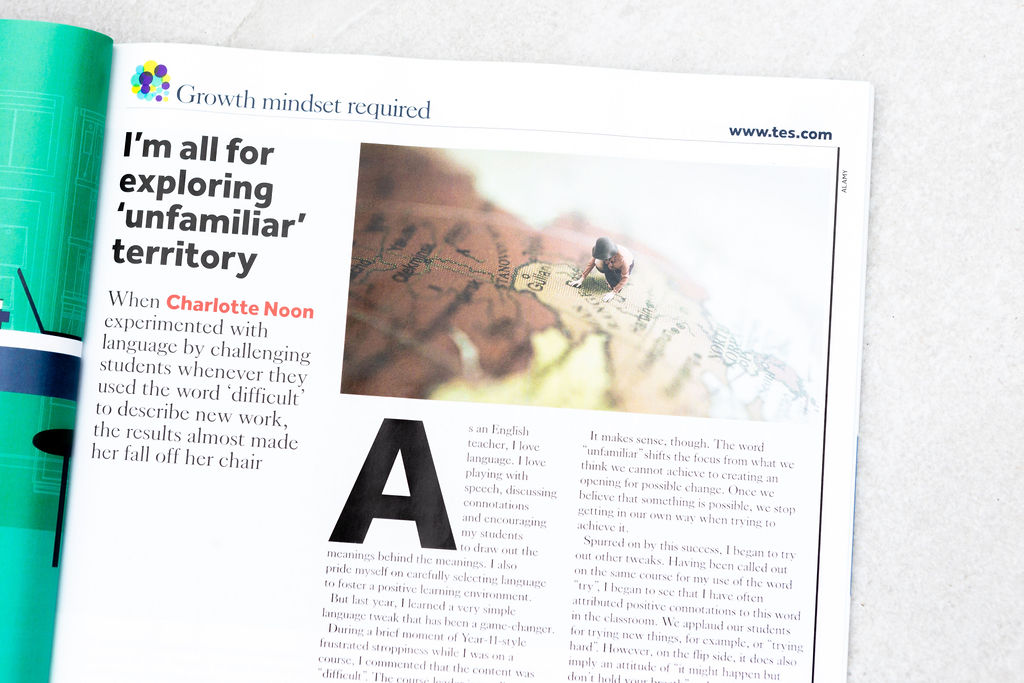
Article for Times Educational Supplement 'Growth Mindset Required' column
The brief:
I was commissioned to write a piece based on my own experience of how minor language tweaks in the classroom have delivered big results in terms of growth mindset – how simply changing the word “difficult” to “unfamiliar”, for example, can completely change a student’s attitude towards approaching a task and how the word “try” speaks volumes in terms of the self-doubt that the student may be feeling.
Opening of the article: As an English teacher, I love language. I love playing with speech, discussing connotations and encouraging my students to draw out the meanings behind the meanings. I also pride myself on carefully selecting language to foster a positive learning environment. But last year, I learned a very simple language tweak that has been a game-changer.

Article for Rapport magazine
The brief:
Rapport is the leading NLP magazine for Neuro-Linguistic Programming (NLP) professionals.
I was asked to write an article about how I have used NLP in education.
I chose to write about the importance of allowing teens to set their own target grades as this is a topic I feel so passionately about.
A snippet from the article:
Target grades were not treated with the same level of reverence when I started my teaching career. Now, however, it is too often the case that in my first coaching session with a teen, they will introduce themselves as a number. “I am a 4 for English. I need to be a 6,” they sigh.
Says who? Where do these arbitrary numbers come from? Their teachers? Somebody who knows them well? Sadly, this is often not the case. The truth is that many GCSE target grades come from tests taken all the way back in Year 6 at the tender age of 11. Yes, really. The child’s Year 6 SATs results are chucked into one end of an algorithm, which churns out a list of predictions for their Year 11 GCSE results (to be sat when they are 16 years old). The success of the child (and subsequently their teachers) is assessed on whether they achieve or exceed those targets.
These target grades seem to be less than helpful regardless of whether the teen is predicted a low grade or a high grade.
A low target grade creates a ceiling which the student often feels that they cannot move beyond. When I ask my students what grade they want, they are often embarrassed as they sheepishly admit to me that they would really like a 9, although they have only been predicted a 6, as though they somehow have ideas above their station. The first thing I do is help them to remove that ceiling.
Would you like some help to research and write an article?
